ARTICLE AD BOX
Clutching their father’s hand, 12-year-old twins Zain and Zoya tried to escape Pakistan’s nighttime shelling in Poonch, a town caught in the crossfire after India launched a number of missiles across the border on Wednesday to avenge the 26 civilians killed last month in the Himalayan tourist haven of Pahalgam.
Zain and Zoya’s family was trying to escape the border town to a safer place after they heard a loud explosion close to their house. They had barely stepped outside when another explosion tore through the street. Their uncle, Adil Pathan, witnessed the children’s last moments as they got caught in the second blast.
“They came (to the world) together and they died together. One of them took their last breaths in my arms before I put them in my car and rushed my sister and brother-in-law to safety,” Pathan tells The Independent.
Their father, Ramees Khan, was injured in the blast and remains in a stable condition at a hospital.
Poonch was one of the worst-affected border towns that came under attack after Pakistan launched artillery fire in retaliation to India’s pre-dawn strikes in Pakistan and Pakistan-administered territories. The Indian Army have stated they were striking terror camps after the militant attack in Pahalgam. Poonch, some 30km from the Line of Actual Control, a 740km-long de facto border between India and Pakistan, is surrounded by mountains on three sides.
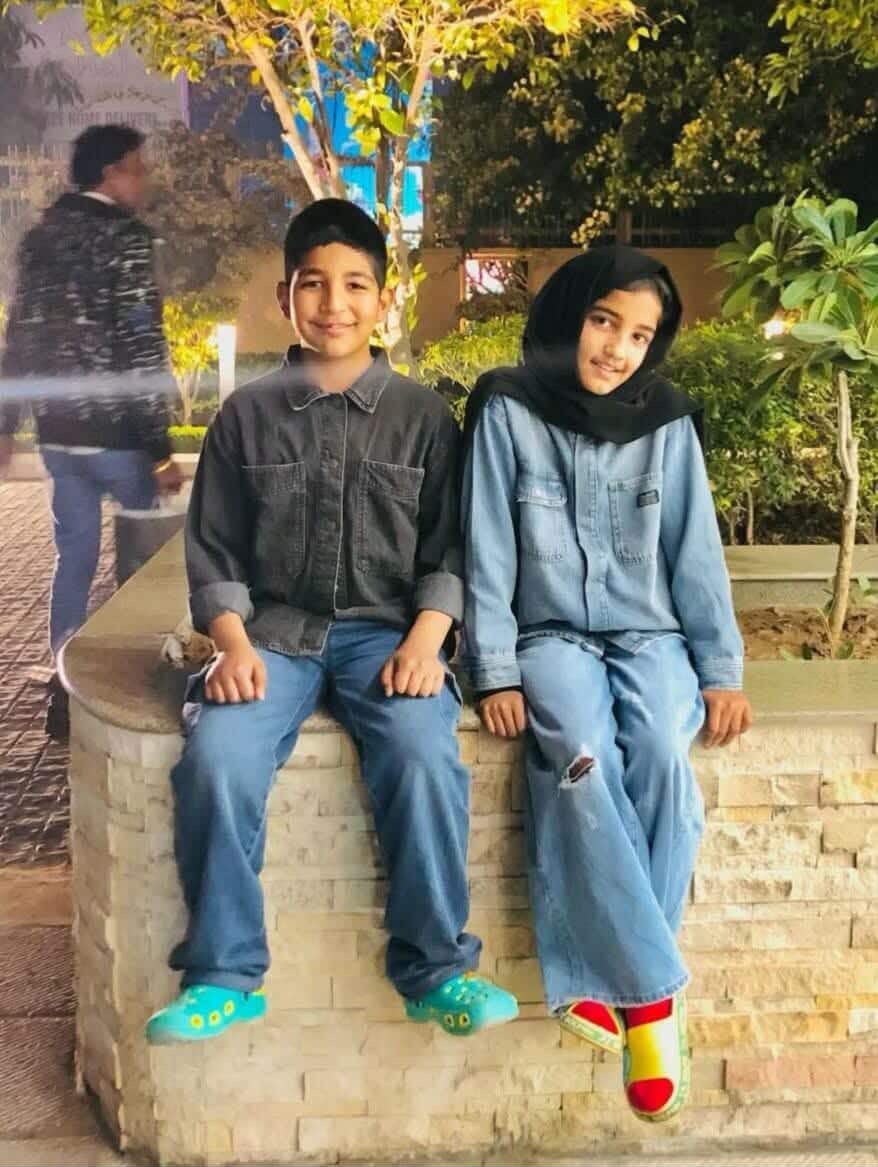
A Sikh temple, an Islamic school, and dozens of houses have been damaged in the Pakistani fire in the densely populated Poonch since India launched the attack, The Independent has learned.

The siblings were among the thousands of people who began fleeing as intense firing began after 1.30am when India launched the strikes deep into Pakistan as well as the border areas in Pakistan-administered Kashmir.
“We do not want war. If the Indian government wants war, then it should be a full-fledged war. It is us who are paying with our blood for these hostilities. Our kids have died but it should not happen to other parents,” Pathan says.
Poonch, a district where many Kashmiris had settled to escape hostilities in villages closer to the border, is no stranger to sporadic breakouts of fire from both sides.
Sajid Bukhari, a 28-year-old resident, says he had not seen a Pakistani attack of this scale in the area in his entire life since he gained his senses.
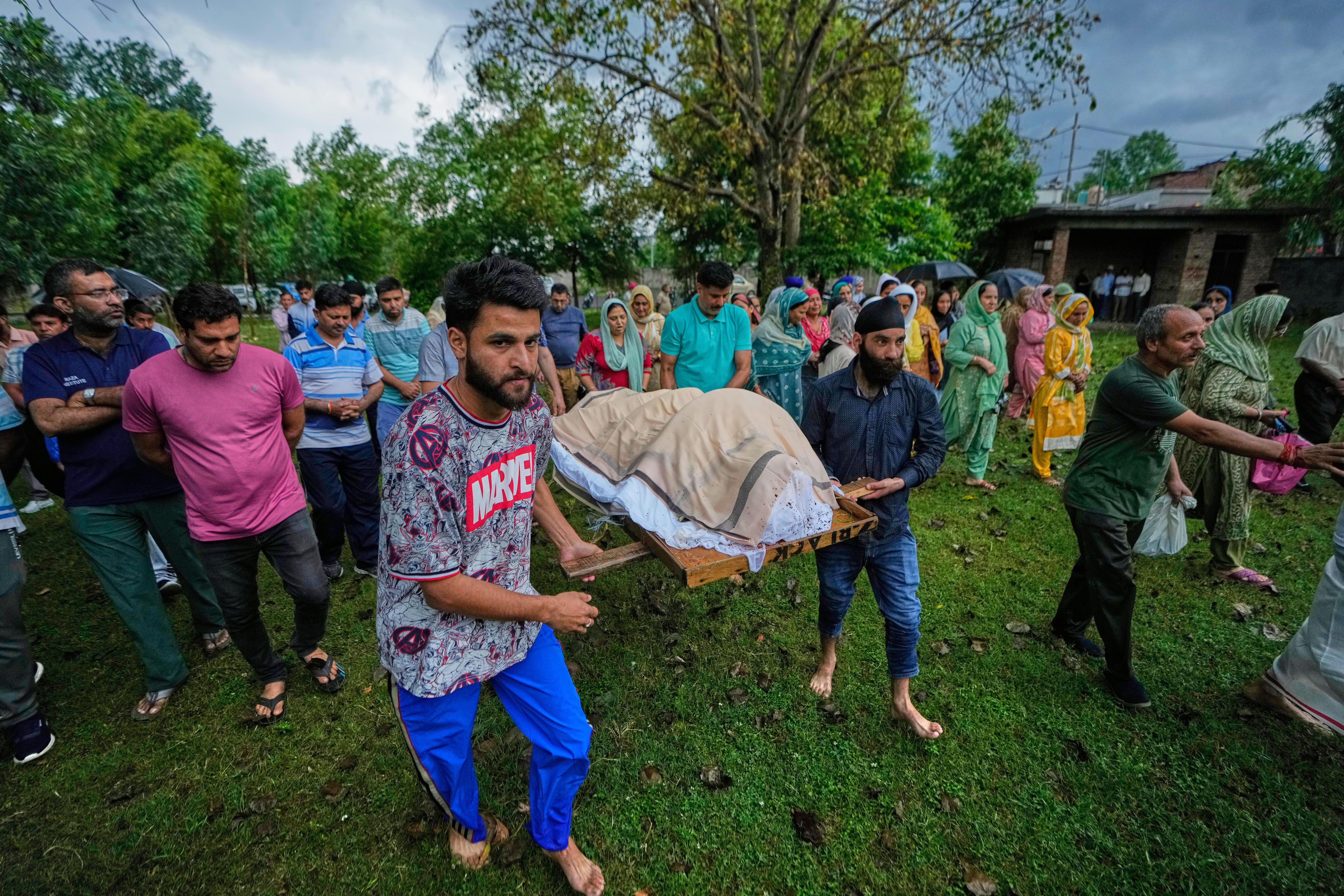
“People ran with what they could and how they could. People were screaming, children were crying and everyone was frightened as we all ran for our lives,” Bukhari tells The Independent.
No one, he said, ever expected Pakistan to fire so deep into the Indian side and strike civilians.
“At 1.30am we began hearing the loud firing and the windows of our home started shaking. At that time, we did not know the gravity of the situation or that India had attacked Pakistan. We knew India would take military action but we did not know when, and when it happened, we were caught off guard. Soon we realised it was a full-blown attack and not just small firing from the hills of Pakistan,” he says.
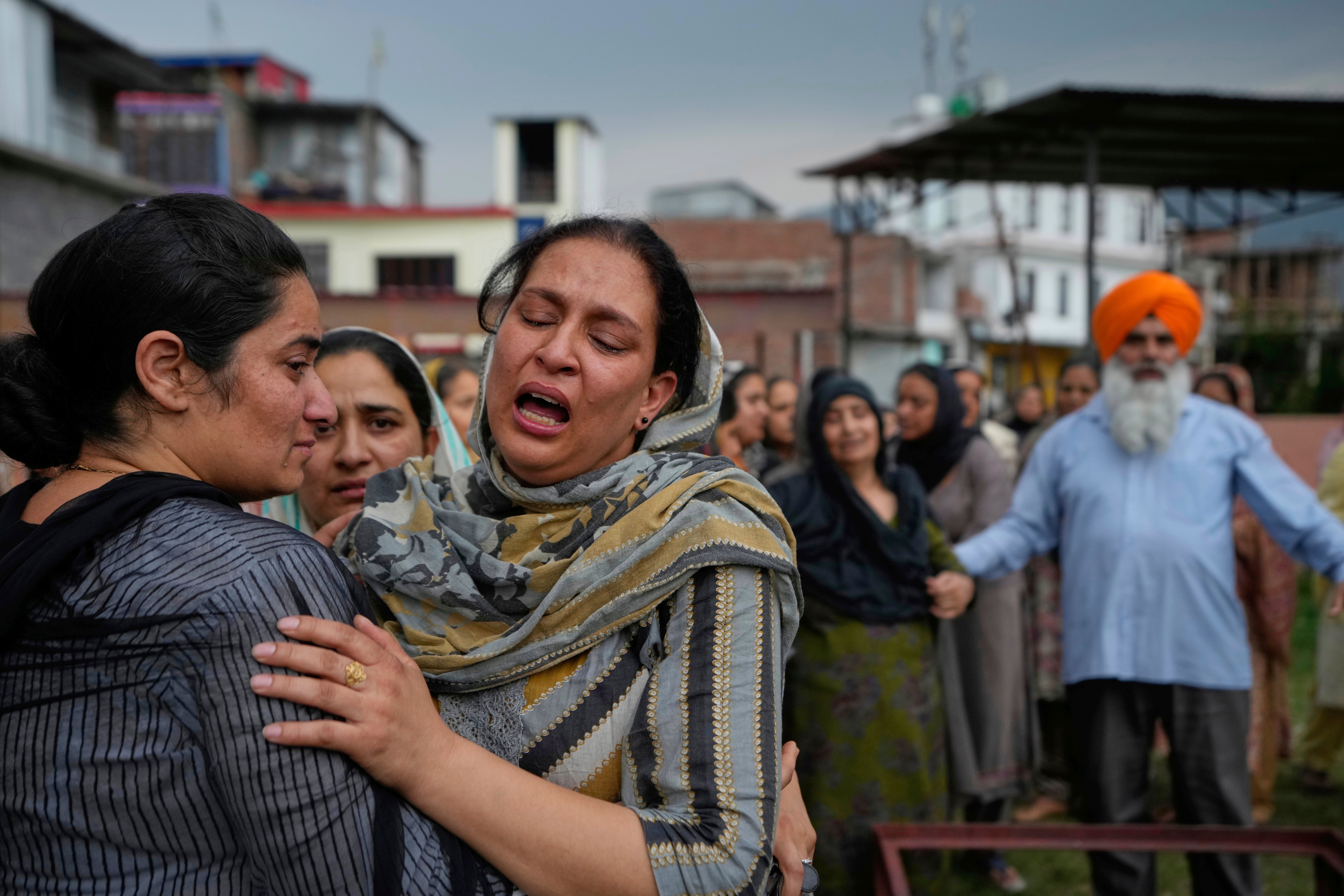
“Eventually, the shelling became intense and began reaching the centre of the town, and I saw houses being struck and people dying in front of me,” he adds.
Bukhari says those who had a car drove and those who had no option just walked under the rumbling open skies for 20 to 50km, fearing a strike anytime on them.
“The roads were packed with people trying to leave. It was a traffic snarl, and there was real fear that vehicles could be hit – some actually were. It felt like a war zone. My house is in the main town near the market and our home is more exposed to the mountains, so we moved to a neighbour’s house overnight. By morning, all our family members had to leave,” he said.
Mobeen Khan, a 38-year-old advocate from Poonch, says there was no warning of firing or evacuation orders from the authorities, even as first strikes killed people in the town.
“We put our lives at risk and left the town at the crack of dawn with no information from anywhere of what was happening and where it was safe,” Khan says.
“There was no support from the government, no warning from the government. Jets were hovering over us and the walls of our house were shaking.
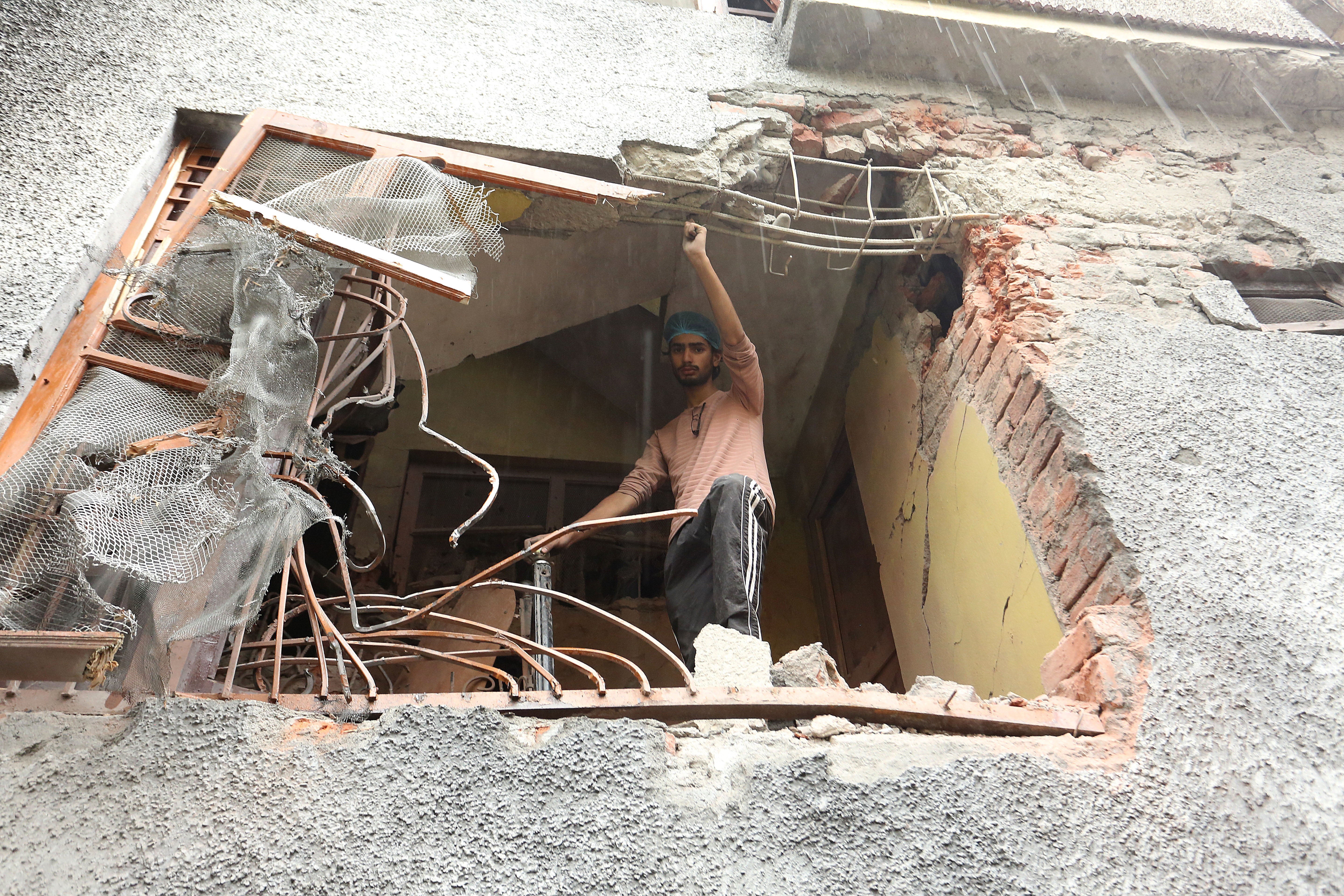
Khan says his child asked, “Papa, what is happening? Why are there noises and why are people are screaming”? “This could scar him for his entire life and these horrific scenes will stick with us forever,” he adds.
The whole family was awake in fear as firing continued, Khan says. It was the moment when some splinters fell on the terrace of their home that he knew they had to leave, Khan says. They packed their bags with what they could and escaped with his two children, four and seven years old, and his wife as the day broke at 7am.
“The first explosion happened during the night, just 50m from my home, and the government did not evacuate anyone. It was horrible. Poonch is really in bad shape,” he says.
Relentless fire has continued in Kupwara district, Uri, Sunderbani and Naushera sectors in Rajouri, Akhnoor, and Tangdhar, according to available information.
In Salamabad, Uri, a ghost town where people have fled their homes, Talib Hussian, says his house has been bombed and he is left with nothing.
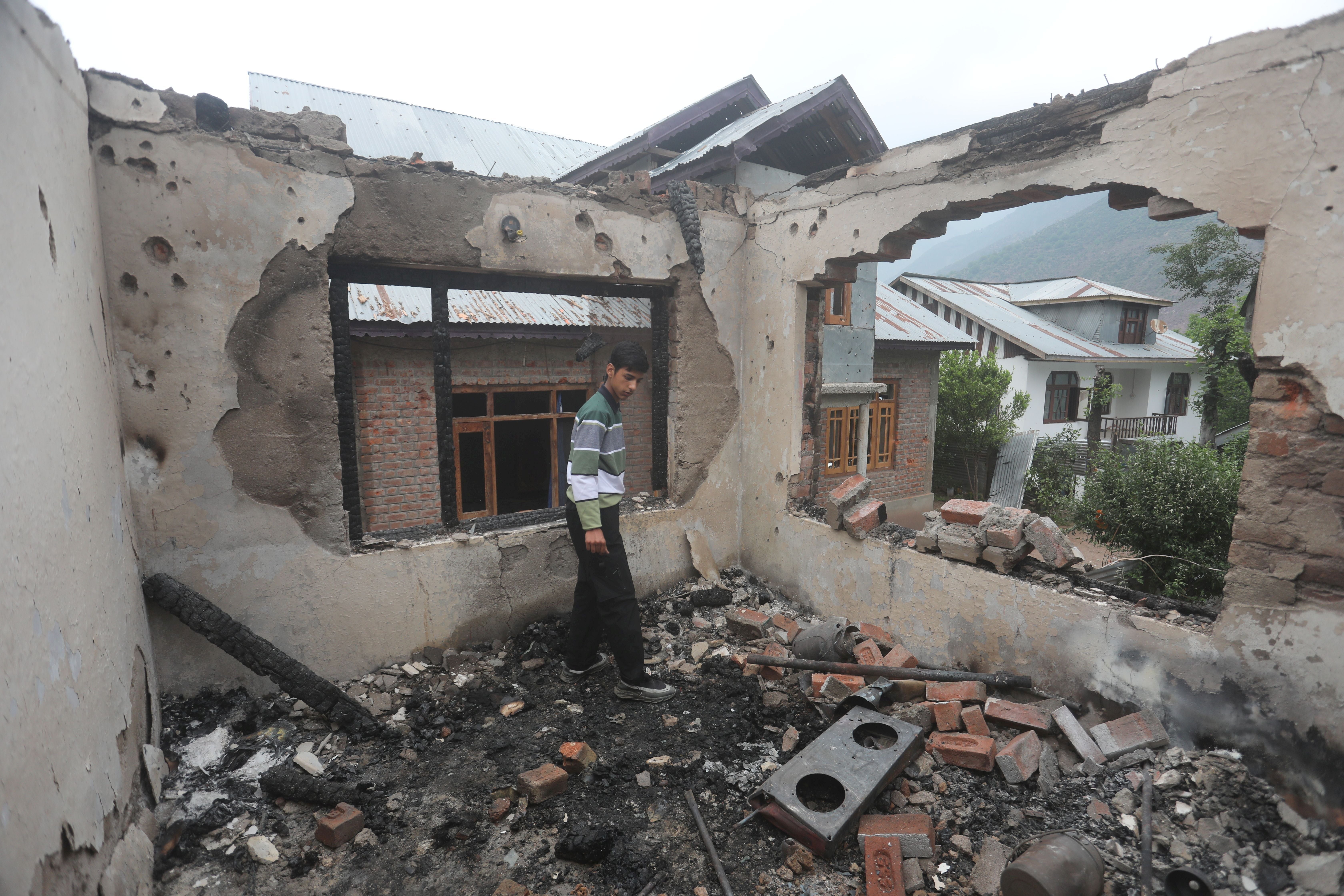
“We were hit by bombs. We didn't know where they came from, it was a terrifying moment,” he says.
“We couldn't recognise each other; I couldn't recognise my own son, and he couldn't recognise me. My house and all my belongings have been destroyed. The only thing I have left is what I'm wearing right now.
“I have no food, no blankets, nothing is left. We're now at the mercy of God, nothing remains. We constantly fear more shelling. We are scared.”
Muhammad Sayed, a student in Salamabad, says: “I am a student here but I never witnessed such heavy firing. It was scary and horrible.”
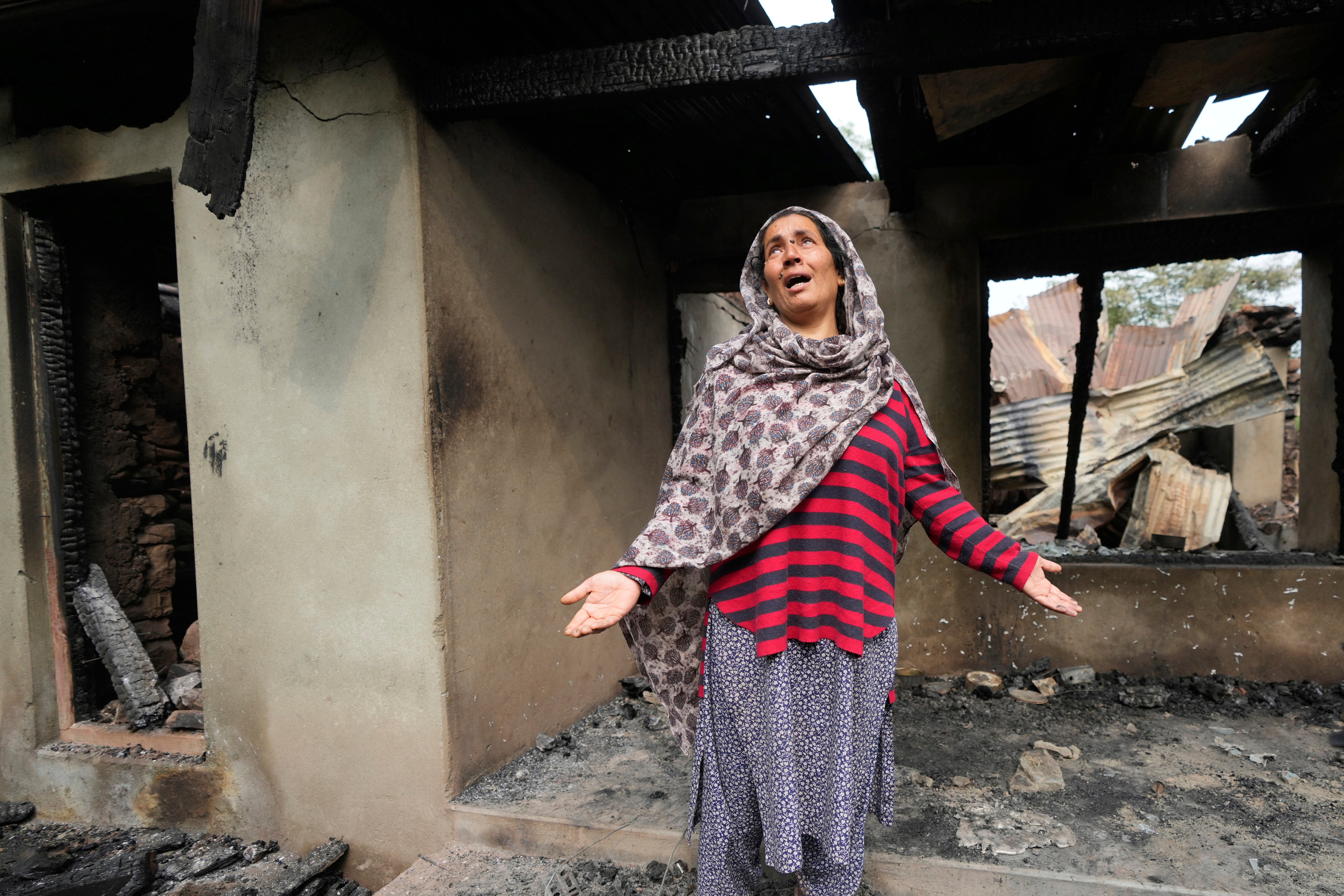
India launched the attack in Pakistan under Operation Sindoor, a symbolic name which refers to the vermilion powder worn in the hair parting by married Hindu women. The operation was to avenge the men who lost their lives in the Pahalgam attack. A local pony handler and a Nepali tourist were also among those killed.
India's foreign ministry said that 16 civilians were killed and 59 wounded the previous day during exchanges of fire across the border. An Indian soldier was also killed by shelling on Wednesday, according to the Indian Army. India’s foreign secretary Vikram Misri accused Pakistan of targeting the Sikh community in Poonch and said that three people from the community died when a gurdwara in the district was hit by shelling from Pakistan.
Pakistan said at least 31 civilians, including children, died in the attacks, and has vowed to retaliate.
Bukhari says he is happy that India is avenging the deaths of innocent people killed in the terror strike in Kashmir but the justice for the widows of Pahalgam has come at the cost of the women of Poonch as well.
“They were important, but they were more important than the people in Poonch and Uri?”









 English (US) ·
English (US) ·